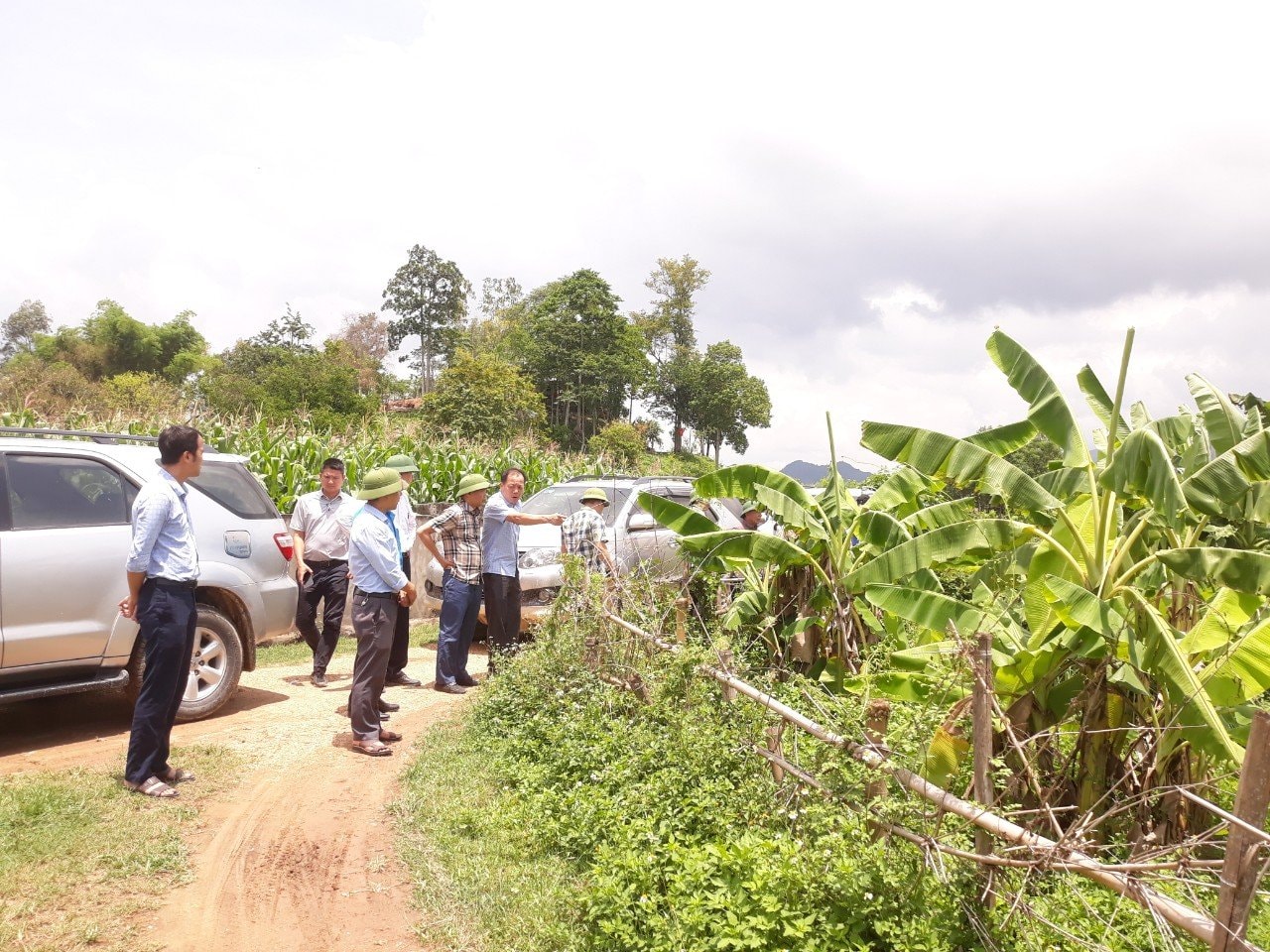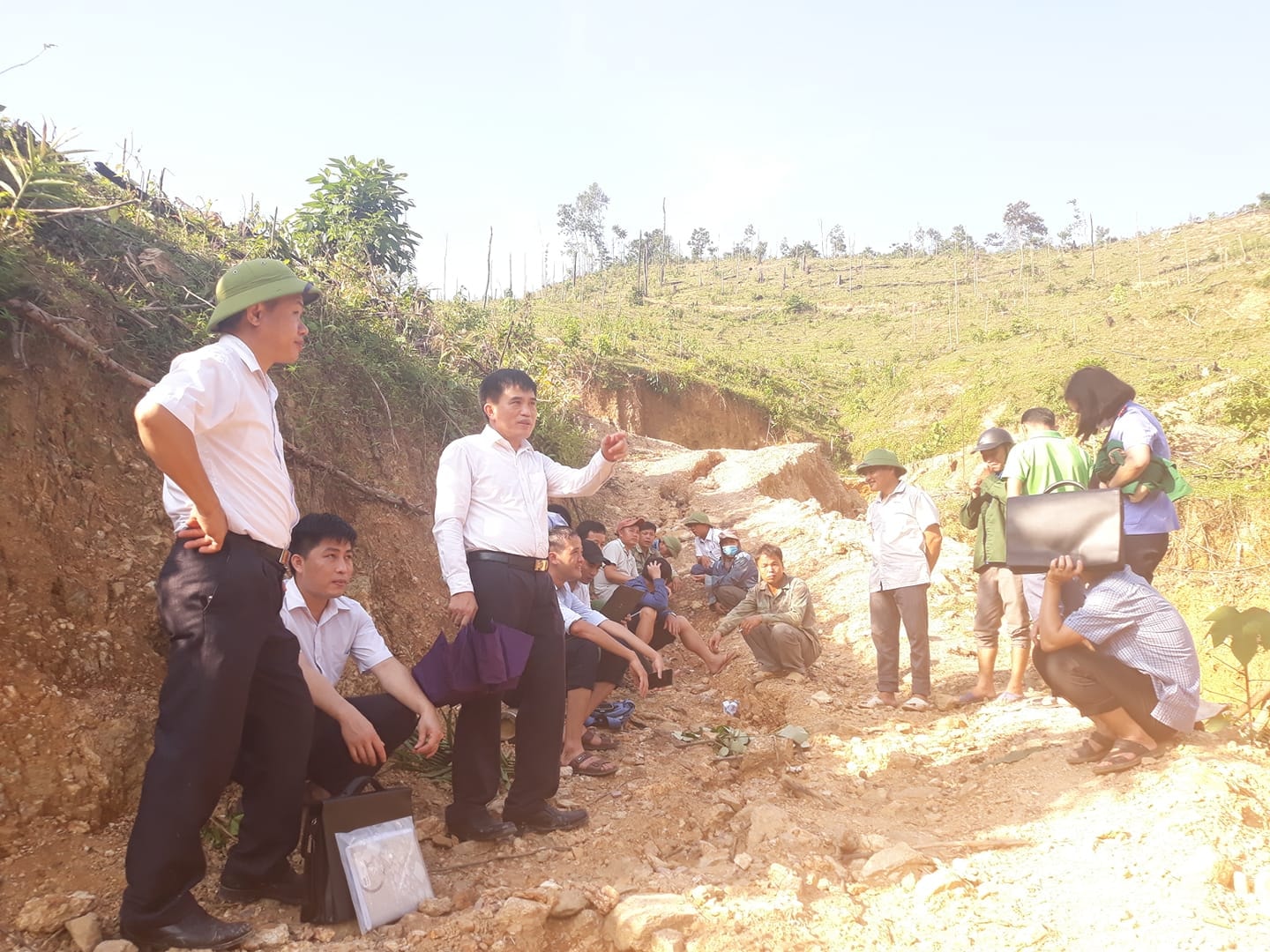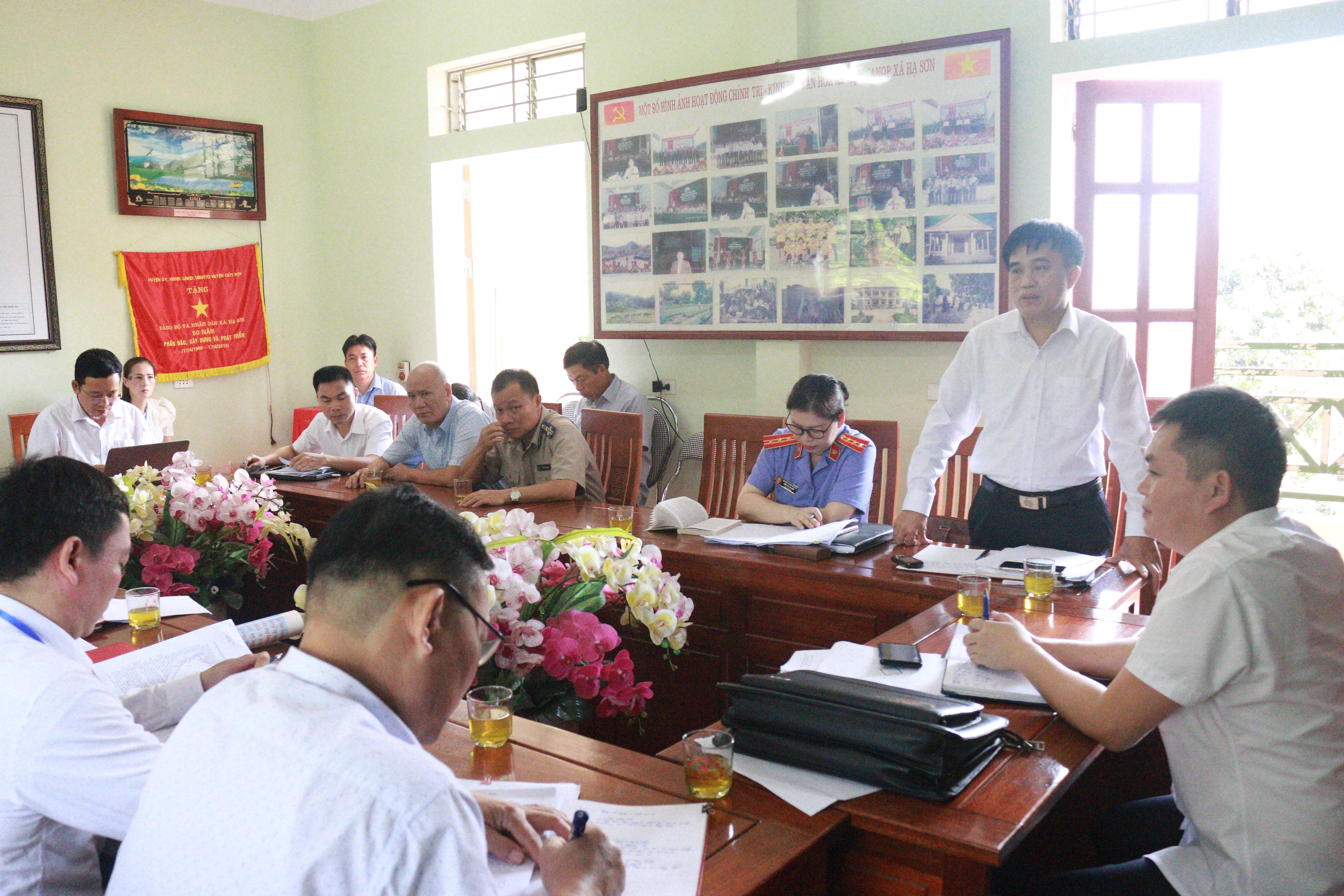The role of interdisciplinary teams in resolving petitions and disputes in Quy Hop
(Baonghean.vn) - Based on the promulgation of coordination regulations, an inter-sectoral working group to handle and resolve petitions, disputes and incidents arising in Quy Hop district has been established and put into operation. This is the first model deployed in the province, initially showing effectiveness.
Many conflicts and disputes are resolved
Flipping through a stack of files with hundreds of resolved cases, Mr. Dao Van Dat - Chief Justice of Quy Hop District People's Court said: It is a mountainous district with a population of more than 115,000 people (ethnic minorities account for more than 52%), large area, ranking 7th in the province.
Due to the history of land management and use in the past, there were many limitations, so the situation of land disputes in the area is increasing. Meanwhile, there are no specific regulations as a legal corridor to bind the authorities of communes and towns to get involved in the process of the People's Court performing a number of tasks related to the commune level and vice versa, especially in the mediation and dialogue to resolve land disputes. This leads to many cases being resolved for a long time.

Based on the above reality, the People's Court of Quy Hop district proposed the People's Committee of the district to issue Regulation No. 01/QC-PH dated January 13, 2021 on coordination in work between the People's Court of Quy Hop district and the People's Committees of communes and towns. Next is the "Regulation on coordination in handling and resolving petitions, disputes and cases arising in the district" dated May 23, 2022 between the People's Committee of the district, the People's Court of the district and the People's Procuracy of the district. On the same day, the Chairman of the People's Committee of Quy Hop district issued Decision No. 827 to establish an "Inter-sectoral working group to handle and resolve petitions, disputes and cases arising in the district".
With close and synchronous coordination, especially after the decision to establish an interdisciplinary working group, many cases in the area have been resolved without having to go to court.
For example, the long-standing land dispute of Mr. TVNh's family in Con To hamlet, Ha Son commune. Specifically, in November 1996, Mr. Nh's family suffered a house fire and moved to his grandfather's house temporarily, then moved to another place until now. The land where the house was burned down has an area of 1,600m22 was granted a certificate on December 29, 1996, Mr. Nh. lent the land to Mr. PVĐ and Mrs. TTTh to build a house, and Mrs. Th. later made the certificate. After nearly 30 years of neglect, Mr. Nh. wrote a petition to resolve the dispute, with the goal of reclaiming the land. There was a time when the two families had conflicts to the point of fighting each other.
With the participation of the working group based on the provisions of the law, as well as the flexibility of the members, after many successful mediations, Mr. Nh. agreed to the plan for the district to revoke the previous Land Use Rights Certificate, because in fact he had not used it for nearly 30 years; at the same time, re-issue the above agricultural land plots, in which, cut 800m2 for Ms. Th.2, exactly the same area as Ms. Th. is using. Not to mention, Mr. Nh. also agreed to support Ms. Th. with money to build a house and drill a well with the amount of 40 million VND, with the reason that if Ms. Th. had not renovated, embellished, and used it until now, the above land area would have been reclaimed by the State.

Similarly, the land dispute between Mr. NXL and Mr. NVM's family in Chau Ly commune occurred in 2019. Specifically, Mr. L. said that his family had reclaimed the land for living and gardening since 1968 and had been using it until now. The granting of forestry land to Mr. M.'s family to grow acacia overlapped part of Mr. L.'s family's area. When Mr. M. contacted to set up boundary markers, Mr. L. did not agree and a dispute arose.
To resolve the case, the working group, in addition to clarifying the responsibilities of the locality, level, and sector in the previous overlapping issuance of land use rights certificates, forced the revocation of the wrongly issued land use rights certificates, also promoted the village spirit and the spirit of helping each other in times of need. Thereby, the two families, from the tension of not being able to find a common voice, agreed to the plan of re-establishing the boundary markers in the field.
Continue to promote the role of interdisciplinary teams
According to Mr. Dao Van Dat - Chief Justice of Quy Hop District People's Court: Although the time of operation is not long, the interdisciplinary team established under Decision 827/QD-UBND has initially achieved some important results. The coordination of work has mobilized the intelligence of many individuals, many departments and branches in reviewing records, conducting field surveys, organizing work between related parties, so when resolving cases, it will be more comprehensive, accurate and have consensus on the direction of resolution. On the other hand, at the working sessions, most of the heads of branches were present and spoke, so it was highly convincing, creating trust for the people, making the related parties correctly and fully aware of the matter, facilitating the resolution process.
After nearly 2 years of operation, the interdisciplinary team has handled nearly 300 cases; the successful mediation rate is over 90%. Thereby, the number of petitions sent to the district for settlement has decreased (in 2022 there were 659 petitions, by 2023 there were 459, a decrease of 200 petitions).
To achieve the above results, according to Mr. Dao Van Dat, before conducting the conciliation session, the working group must work separately with each plaintiff or defendant to grasp the lawsuit requests. After choosing the time to conduct the conciliation, as an intermediary, the working group must clearly explain the legal provisions related to the case, helping people better understand their rights and obligations, on that basis, find an agreement that ensures harmony of rights and interests of the parties.

As a local resident, Mr. Nguyen Cung in Dong Hop commune said: Implementing the signing of coordination regulations, establishing an inter-sectoral working group to handle and resolve petitions, disputes and incidents arising in the district is a good way. Because in reality, to resolve an incident, all levels and sectors will sit together, with the participation of the people to discuss and agree on the most optimal solution, contributing to reducing costs and travel time for the people, not to mention that through that, the village and neighborhood relationships are mended...
Talking to us, Mr. Quan Vi Giang - Vice Chairman of the People's Committee of Quy Hop district said: The establishment of coordination regulations and interdisciplinary teams has made an important contribution to resolving petitions, disputes, and incidents arising in the district. It is the combination of many dedicated cadres in their work, knowing how to flexibly apply reason and emotion to both reconcile and dialogue, which has untied many knots and complicated details, helping to resolve many long-standing complaints, many of which have been over a decade, reducing the pressure of petitions on local authorities.
To improve the effectiveness of the interdisciplinary working group in the coming time, according to Mr. Quan Vi Giang, in addition to continuing to promote the propaganda and dissemination of laws to the people; members of the working group need to constantly improve their professional qualifications, skills, and social knowledge. Because with the goal of reaching reconciliation, this work not only applies legal knowledge, but also requires life experience and sensitivity in handling problems, thereby helping the parties find the best solutions to resolve conflicts and disputes.


